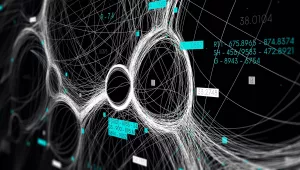Memo in report Confrontation or Collaboration? Congress and the Intelligence Community
This originally apeared as a Background Memo (pp. 44-49) in the report Confrontation or Collaboration? Congress and the Intelligence Community, a publication of The Intelligence and Policy Project of Harvard Kennedy School's Belfer Center for Science and International Affairs.
Unlike many nations, the United States does not have a dedicated organization focused on domestic intelligence collection. Although the Federal Bureau of Investigation (FBI) is the principal domestic intelligence agency, the Central Intelligence Agency (CIA) and Department of Defense (DoD) also play limited domestic intelligence roles. In response to criticism following the attacks of 9/11, the FBI began reforms to increase their collection and analysis of domestic intelligence, especially in regards to terrorism. Nonetheless, critics contend that FBI intelligence collection continues to play a secondary role to the FBI's primary mission, federal law enforcement.
This memo provides new members of Congress with an overview of U.S. domestic intelligence and the issues most relevant to the 111th Congress.
Domestic Intelligence before September 11, 2001
Since its creation in 1908, the FBI has been responsible for both domestic intelligence and law enforcement. From the 1930s through 1960s, the FBI focused on cases of espionage and foreign subversion. The Church Committee investigation of intelligence abuses in the 1970s disclosed a series of FBI—along with CIA and NSA—violations of Americans' civil liberties. Congress passed a series of reform laws in the late 1970s, including the Foreign Intelligence Surveillance Act (FISA), to prevent future abuses.
In the wake of the intelligence scandals of the 1970s, concern about the potential for intelligence agencies to inappropriately collect information that could be used to prosecute citizens prevailed. This concern eventually morphed into a mistaken belief that intelligence officials could not legally share information with FBI criminal investigators. The resulting "wall" of bureaucratic obstacles virtually halted the flow of intelligence information provided to domestic law enforcement agencies. The 9/11 Commission highlighted this shortcoming as a major impediment to national security.
Post-9/11 Domestic Intelligence Paradigm
The attacks of 9/11 resulted in major organizational and functional changes within the Intelligence Community and dramatically shifted FBI priorities from traditional criminal matters to international counterterrorism threats and intelligence gathering.
After much debate, the 9/11 Commission recommended against creating a dedicated domestic intelligence agency, and instead recommended that the FBI expand and improve its intelligence capabilities. In order to improve its domestic intelligence capacity, the FBI pursued the following initiatives:
- Joint Terrorism Task Forces (JTTFs): The JTTFs are multi-agency task forces located in more than 100 locations nationwide. JTTFs bring local, state, and federal law enforcement and intelligence agencies together to share information and conduct operations to prevent terrorist operations. Prior to September 11, 2001, the United States had 35 JTTFs. Shortly after the attacks, the FBI Director instructed all FBI field offices to establish formal terrorism task forces.
- Personnel: The FBI hired hundreds of counterterrorism analysts and linguists, and re-tasked more than 700 personnel from criminal investigations to counterterrorism and counterintelligence duties.
- National Security Branch: The Bureau merged its intelligence, counterintelligence, and counterterrorism divisions into a unified "National Security Service" in 2005.
- Field Intelligence Groups (FIGs): FIGs are composed of Special Agents, Intelligence Analysts, and other FBI specialists in each of the FBI's 56 field offices. They are designed to integrate the "intelligence cycle" into FBI field operations and manage the Field Office Intelligence Program in coordination with the Directorate of Intelligence at FBI Headquarters.
- Domain Management Initiative: In November 2005, the FBI launched the Domain Management Initiative to focus attention on national security threats within each field offices "geographic domain." The goal of program is to develop a comprehensive understanding of the threats relevant to each field office's region.
Assessing the Effectiveness of FBI Reforms
Opinions on Capitol Hill vary with respect to how successful the FBI has been in implementing their intelligence reform initiatives.
- Some indicate there is a critical synergy between law enforcement and intelligence—especially when addressing and thwarting terrorism threats. They believe the FBI's vision for intelligence reform is sound and that success is simply a matter of implementing that vision.
- Others believe law enforcement and intelligence are distinct disciplines that demand different skill sets. Ongoing FBI reforms have failed to produce an integrated intelligence program and that the FBI lacks the internal management acumen and vision to successfully transform itself into a premier domestic intelligence agency.
When the 9/11 Commissioners offered their final report on intelligence reform in December 2005, they gave the FBI a "C" and stated:
"Progress is being made—but it is too slow. The FBI's shift to a counterterrorism posture is far from institutionalized, and significant deficiencies remain. Reforms are at risk from inertia and complacency; they must be accelerated, or they will fail. Unless there is improvement in a reasonable period of time, Congress will have to look at alternatives."
Institutional Changes Outside the FBI
Although the FBI is the lead agency for domestic intelligence, many other organizations within the government contribute to the collection, processing and analysis of domestic intelligence.
The Department of Homeland Security (DHS)
The Office of Intelligence and Analysis, located in the Department of Homeland Security, employs over 500 staff responsible for sifting through, analyzing, packaging, and disseminating intelligence based on information collected by DHS component agencies. I&A also integrates with the broader intelligence community and uses DHS links to state, local, and private sector partners to share information about potential threats.
The National Counterterrorism Center
Since 2005, FBI intelligence experts have been co-located at the National Counterterrorism Center (NCTC) with colleagues from across the Intelligence Community to assess and analyze terrorism threats.
Department of Defense
The Defense Department established the Counter Intelligence Field Activity (CIFA) in 2002 to counter threats to U.S. military installations and detect espionage against the Pentagon. CIFA had both intelligence and law enforcement functions. After a short and controversial existence in which several of its key programs were "disestablished", Secretary Gates merged CIFA into the Defense Counterintelligence and Human Intelligence Center at the Defense Intelligence Agency (DIA).
Outstanding Issues in Domestic Intelligence
Despite the reforms outlined above, improving the nation's domestic intelligence capability will remain an important issue for the 111th Congress.
Federal Bureau of Investigation (FBI)
As a lead domestic intelligence agency, the FBI continues to improve counterterrorism initiatives, intelligence sharing and capabilities. The 111th Congress will likely need to assess these and other reform issues that have expanded the mission of the FBI.
Department of Homeland Security (DHS)
As DHS continues to expand its intelligence activities, the Department has encountered potential hurdles to using intelligence assets to collect information within the United States. For example, DHS has proposed using overhead surveillance assets to provide domestic policymakers information about potential natural catastrophes, such as wildfires or hurricanes.
National Counterterrorism Center (NCTC)
Although the NCTC serves top policymakers, some experts assess that the NCTC does not push sufficient intelligence and information to state-level fusion centers, JTTFs, and local law enforcement.
Department of Defense
Some Members of Congress have expressed concern about DoD's increased role in domestic intelligence since September 11th. The 111th Congress will likely need to assess the value and legal authorities of DoD domestic intelligence assets.
Sources
Church Committee Final Report Book III, "The Development of FBI Domestic Intelligence Investigations," 1976.
National Commission on Terrorist Attacks. (2004). The 9/11 commission report: Final report of the National Commission on Terrorist Attacks upon the United States. New York: W.W. Norton.
Treverton, Gregory F. "Balancing Security and Liberty in the War on Terror." Campbell Public Affairs Institute and the Institute for National Security and Counterterrorism, Information Sharing and Homeland Security, Syracuse University: New York, 2004.
Gorman, Siobhan. "Worlds Apart." The National Journal August. 2003 Robert Mueller, speech to the ACLU, June 2003.
Studeman, Michael W. "Strengthening the Shield: U.S. Homeland Security Intelligence." International Journal of Intelligence and Counterintelligence, 20:2.
Kessler, Ronald. "The New Spies." SAIS Review, Winter-Spring 2008.
Read and download the full report:
Confrontation or Collaboration? Congress and the Intelligence Community
Download this memo:
Rosenbach, Eric and Aki Peritz. "Domestic Intelligence." Memorandum, "Confrontation or Collaboration? Congress and the Intelligence Community," Belfer Center for Science and International Affairs, Harvard Kennedy School, July 2009.







